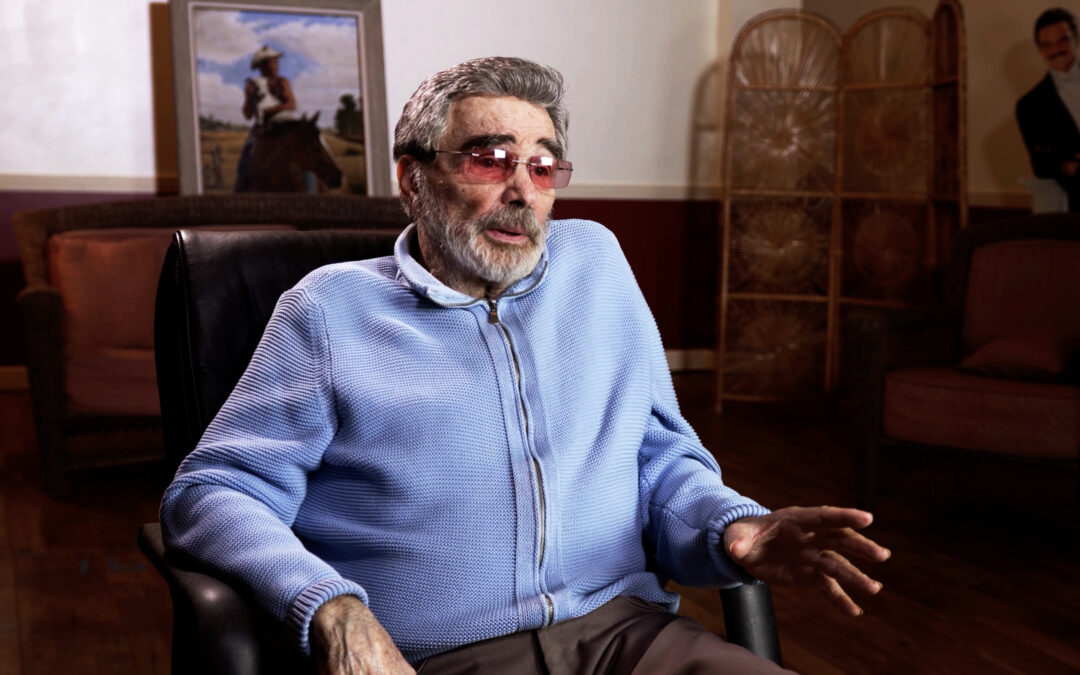(Nemours Marketing)
KDMG, 2023. Documentary. 103 minutes.
Grade: 2.5 out of 4
Burt Reynolds: The Last Interview centers on exactly what you’d expect: a one-hour, uncut interview with the late actor, recorded shortly before he died. Intended for use as part of another documentary, director Rick Pamplin’s Movie Money CONFIDENTIAL, about independent film financing, the footage became much more lucrative when it turned out to be Burt Reynolds’ last on-camera interview ever. Rather than simply sell the footage, Pamplin has fashioned it into a whole feature, adding a 10-minute Quentin Tarantino interview, and almost a half hour of people who knew Reynolds at the Maltz Jupiter Theatre, formerly the Burt Reynolds Dinner Theatre. After the property changed hands several times, Reynolds had returned to teaching there at the end of his life.
The folks who work there seem nice enough, but not especially camera-ready, and their footage only serves to stall until Pamplin’s ready to roll out the Reynolds and Tarantino footage. Rather than serving as opening acts to hype the audience up, their effect is deflating, and the context they add simultaneously too long and insufficient. You’d never know from watching this about the theatre’s year as a church, or Reynolds’ bankruptcy in 1997. But you also might not want to learn about it from folks like Chuck Elderd, the film commissioner of Palm Beach County. Proximity to Reynolds has not led to the star’s on-camera charisma rubbing off, in these cases.
Perhaps Pamplin should have simply put together the Reynolds and Tarantino interviews as a 70-minute short feature instead, but if, as seems likely, this debuts direct-to-streaming, folks will probably watch it that way anyway, scrolling past the narrative dead weight. (Sorry, folks! I’m sure you’re really good at your jobs! But nobody’s watching this for you.) So that’s the part that bears the most assessing.
Once you get past the slight shock of Reynolds looking like a bearded corpse, that mostly intact voice and his confidence bring back a sense of youth and nostalgia almost immediately. His body may be failing, but the mind is 100 per-cent there – Reynolds never stammers, nor has any apparent “Senior moments” of memory lapse. Pamplin showers him with compliments and praise throughout, avoiding any of the star’s occasionally infamous wrath. Wearing literal rose-colored glasses, Reynolds offers his thoughts on acting – “I don’t teach acting; I teach behavior” – and gently ribs some of his famous friends. Jon Voight “pops up all the time on some of the dumbest shows I’ve ever seen”; Charlton Heston was, “the most uncoordinated human being on Earth.”
Pamplin’s own self-promotion can be a bit much – he talks himself up to Reynolds like he’s an accomplished Hollywood filmmaker, yet his major achievements are a pro-J. Edgar Hoover filmed one-man show starring Ernest Borgnine, and a Michael Winslow comedy special (yes, the Police Academy guy who makes the sound effects). A glance at his Twitter feed, full of Ted Nugent, Kevin Sorbo, and Breitbart retweets may somewhat explain why he hasn’t had more success in the business. Some John Wayne praise aside, however, his politics aren’t discernible in this film – just his desperation to appear more famous. Still, while his wheedling can be a bit much, and in a more thorough documentary might be edited out, it gets good responses from Reynolds. The end effect isn’t necessarily cinematic, and to be fair, was never really meant to be, as it was supposed to be 15 minutes just on movie financing to be mined for soundbites. It is exactly what it says, and will be of interest to anyone who simply wants to see Reynolds talk for the last time.
As for Tarantino, he’s here because Reynolds was in the midst of preparing for Once Upon a Time in Hollywood when he died. The actor was set to play George Spahn, and made it as far as one good table reading before he passed on, and had to be replaced by Bruce Dern. Tarantino, always good for a quote or thousand, reveals what Reynolds though of the depiction of an era in cinema he actually remembered, and whether Brad Pitt’s character is based on him. Reynolds still clearly had plans – though his body is self-evidently on the way out, his brain seems not yet ready to go. That may come across as tragic; Tarantino, however, explains why he thinks it’s the perfect ending.
It’s hard to rate this film as a movie, because it’s not much of one. As an interview, it’s solid, and shot in multi-cam, in front of Reynolds’ students, to keep him comfortable and the visuals not completely static. Watch it if you’re interested in Reynolds; consider it if you know nothing about him. But whatever your level of enthusiasm, you can very easily skip anything there that’s not either him or QT.

